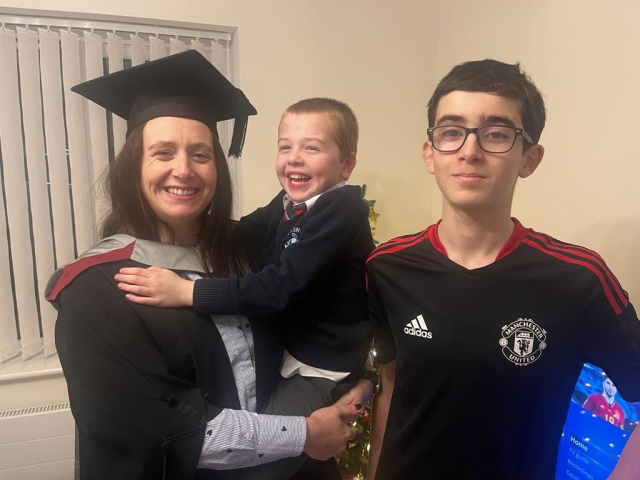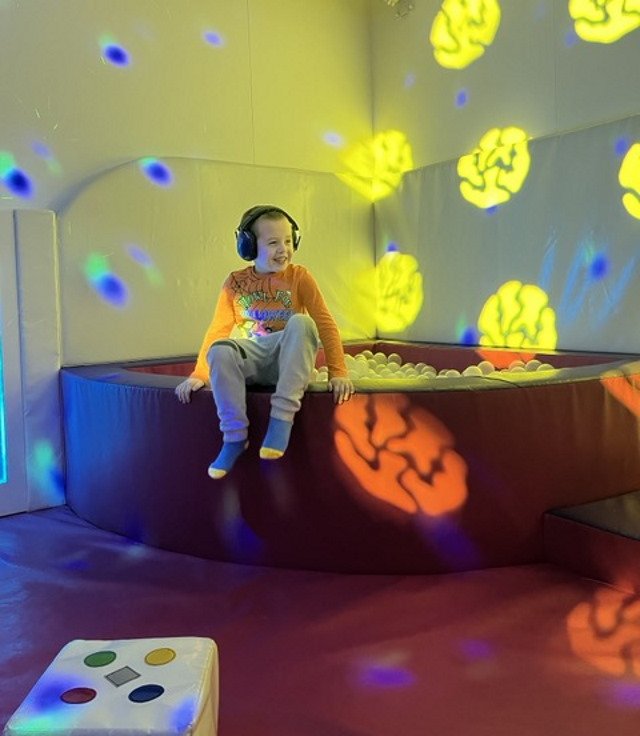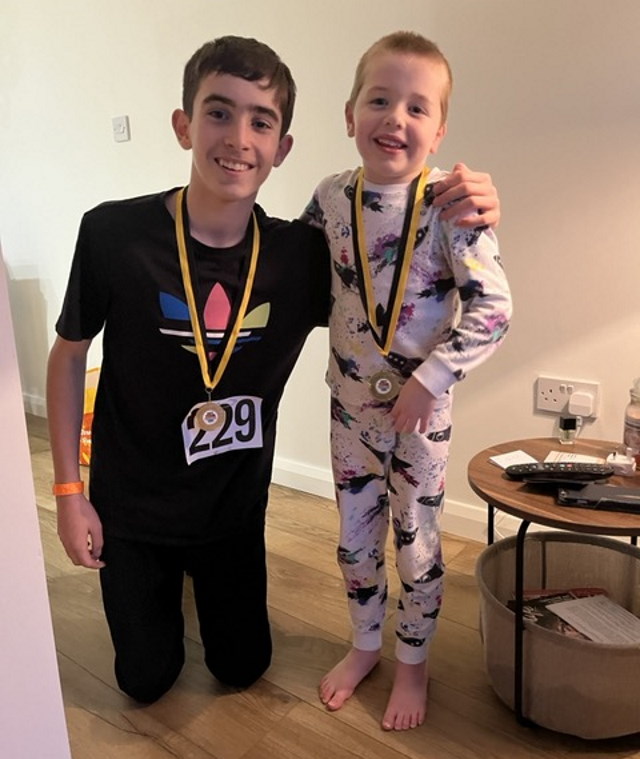2022-December-6
Did you know? You can share this story using the social media icons on the upper left. Use the hashtag #WeAreCisco. You can also rate or comment on the story below.
Moving from Awareness to Acceptance
BY EMMA DEAN · SERVICE DELIVERY MANAGER · U.K.
WITH HELEN GALL
4 MINUTE READ · 6 MINUTE LISTEN
I’m a Service Delivery Manager in the CX UK and have worked for Cisco for seven years.

I am a proud parent of two wonderful, neurodivergent children, both autistic, and they have given me an incredible insight into what it means to think differently and see the world through a different lens.
Many years ago, I studied Psychology at university, as I found it to be an interesting subject.
Following my younger son’s autism diagnosis, I chose to complete a postgraduate qualification in autism in collaboration with the National Autistic Society, to better position myself as an advocate for my children.
Having children with autism means I have considered what their futures will look like and what acceptance in the workplace looks like.
From awareness to acceptance
I know my children are at their best when their environment has accommodations to support them.
This led me to examine our workplace and wonder, “What will work be like for my kids? Will they be able to work in a neurotypical environment?”
Currently, for my youngest, the answer would be no.
We do not yet have the support mechanisms necessary to establish a welcoming, adaptive environment to allow all neurodivergent employees to thrive.

While there is a lot of awareness about neurodiversity, there is a real difference between awareness and acceptance.
Think about it. If you needed to wear a pair of ear defenders, use a fidget device, or stand during a meeting while everyone else was sitting would you feel comfortable?
Even with hybrid work, imagine how you might experience our big, open-plan, collaborative office spaces if you struggled with sensory overload.
Or consider interviewing for a job. If you have difficulty maintaining eye contact, staying on topic, or filtering your answers to avoid being overly honest, how do you think you might fare?
During my studies I have gotten to know neurodivergent adults who have shared the challenges they face. It’s helped me understand that our work environment is not always adapted to everyone’s needs.
There is so much we can do to move us towards true acceptance — from recruitment of neurodiverse talent to ensuring the optimum workspace.
Within CX in the UK and Ireland, I have been working to bring together a community of neurodivergent and neurotypical people to share experiences and to learn from each other. The goal is to create a safe space for people to share concerns, challenges, and suggestions to ensure acceptance for neurodiversity in the workplace.
As an example, CX neurodiversity chapter has taught me how much language matters. Some neurodivergent people prefer person-first language, while others prefer identity-first, such as “autistic person” instead of “person who has Autism.”
Understanding different people’s perspectives and needs is an important part of our journey to an inclusive future, rather than assuming a one-for-all approach works.

I promote real acceptance of neuro difference, so everyone can be free to be themselves in the workplace, be recognised for their contributions, or feel valued.
Connected Disability Action Network (CDAN) is an inclusive community that strives to create a culture of empowering people to challenge inequalities for people with disabilities. This group is a brilliant resource, but it’s also become clear over the past year that there is a real need for a space specifically for neurodivergent conversations and action to take place.
There are wider neurodiversity initiatives across Cisco, including a neurodivergent chapter of CDAN which is currently being formed, with the goal of bringing meaningful impact, awareness and action to those who need them.
For parents like myself, Cisco also has the Special Children’s Network, where parents across the world can come together for support and to share experiences of their children’s different abilities.
My hope is when my children join the workforce, they can be their true selves without needing to mask who they are. I hope everyone sees that they can make huge contributions and value them.
Learn more about the many types of neurodiversity and about what it’s like to being neurodivergent at Cisco.
Related Links
- Connected Disability Action Network (CDAN)
- Being neurodivergent at Cisco
- Special Children’s Network
- Collaboration for everyone
Connect everything. Innovate everywhere. Benefit everyone.
Share your thoughts!
Log in to rate and commentShare your thoughts on the story here!